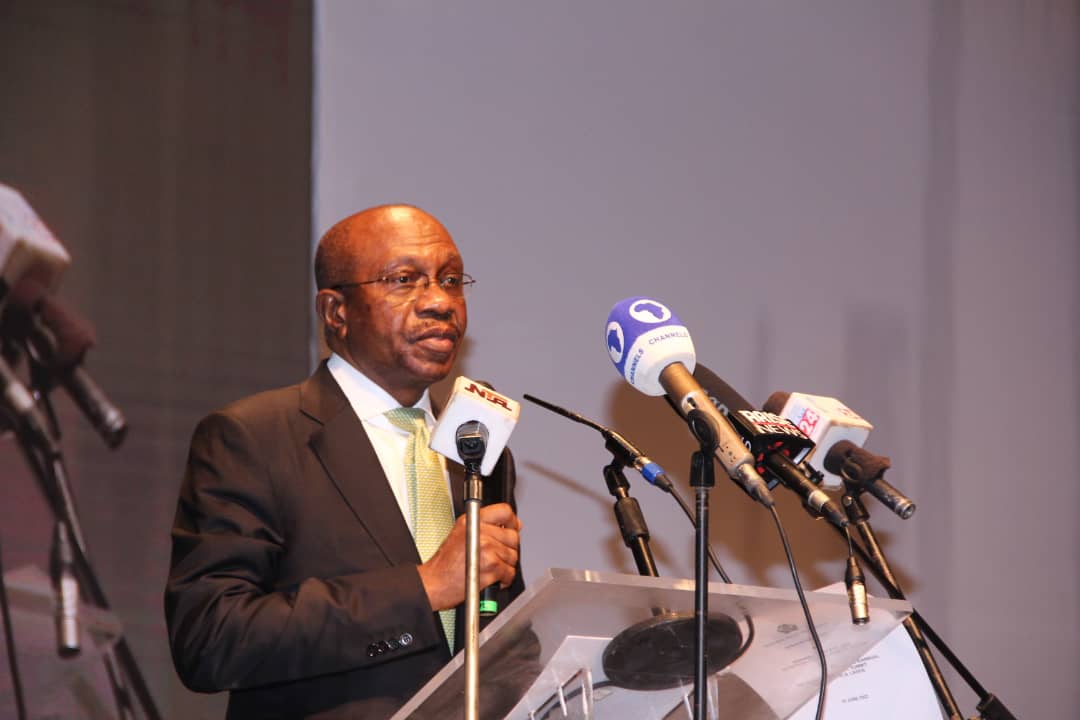Business
2025 CBN Targets Cash-Based Transactions Reduction

The Central Bank of Nigeria (CBN) has said cash payments in business transactions will naturally reduce by 2025 as the new naira notes circulate in the economy.
Making this known in its Payments Vision 2025 document, the apex bank said by 2025, the country will aspire to have a cashless and efficient electronic payment system infrastructure that would facilitate financial services in all the sectors of the economy.
According to the CBN document, the Nigerian payment landscape has many options that have displaced cash in recent times, including electronic bill payment, mobile phone top-up, and mobile and instant payments.
“The use of cash will naturally slow with the ‘mobile first generation’, which will be economically active by 2025, hence one of the focuses of the PSV 2025 is enhancing the cashless policy of the CBN”, the document stated.
“As we implement the PSV 2025 agenda, the CBN will continue to ensure that the Nigerian payments system is widely utilised domestically, supports government’s financial inclusion objectives, and meets international standards while contributing to overall national economic growth and development of Nigeria,” the bank said.
“The PSV 2025 will focus the attention of critical stakeholders on contemporary developments that will drive digital innovations and payment in the future, such as contactless payments, big data, and open banking”, the bank said.
While charging all stakeholders to support the bank in executing initiatives under the PSV 2025 towards fostering an efficient and secure payments system, it said it would ensure a secure, reliable, and user-centric financial solution in compliance with international standards.
Recall that the World Bank had said the quantum of money that could be withdrawn from the counter would be drastically restricted while unveiling the new naira notes in Abuja.
The Governor, CBN, Godwin Emefiele, also insisted that the January 31st deadline for the exchange of old notes would not be extended.
Business
Two Federal Agencies Enter Pack On Expansion, Sustainable Electricity In Niger Delta

Business
Why The AI Boom May Extend The Reign Of Natural Gas

Business
Ogun To Join Oil-Producing States ……..As NNPCL Kicks Off Commercial Oil Production At Eba

-

 Politics4 days ago
Politics4 days agoAPC Releases Adjusted Timetable For Nationwide Congresses, Convention
-

 Sports24 hours ago
Sports24 hours ago2026 WC: Nigeria, DR Congo Awaits FIFA Verdict Today
-
Sports4 days ago
DG NIS Wants NSC Board Constituted, Seeks Increased In Funding
-

 Business4 days ago
Business4 days agoCustoms Seek Support To Curb Smuggling In Ogun
-

 Featured4 days ago
Featured4 days agoINEC Proposes N873.78bn For 2027 Elections, N171bn For 2026 Operations
-

 Sports4 days ago
Sports4 days agoSWAN Rivers Set-up Five Functional Committees
-
News4 days ago
Police Bust Kidnapping Syndicate In PH
-
Sports4 days ago
NSC Disburses N200m Training Grants To 26 Athletes

